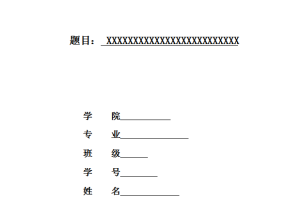Abstract
Listening is an essential component of communication in human life, but for most middle school students, listening is very difficult. In other words, it is their common weakness. Most Chinese students regard English listening comprehension as the most difficult part in all kinds of examinations. They think the listening materials are too difficult to understand. The speed of delivery is too fast and accordingly, anxiety easily takes place during listening comprehension. This paper mainly analyzes the concept of anxiety, the relationship between anxiety and language learning, and some symptoms of anxiety. It also discusses some factors affecting middle-school students’ anxiety while listening. Listening comprehension is a complex activity: it requires students to use their phonetics, vocabulary, grammar and background knowledge. The author suggests some ways to reduce anxiety and improve listening comprehension from two aspects. On the one hand, students must first have a good command of linguistic knowledge, and form a good habit of listening, taking notes while listening. On the other hand, teachers should help students to reduce high anxiety. Teachers can foster students’ good psychological state and interest in study. When students master enough linguistic knowledge, background knowledge, and listening skills, they can understand the listening materials well. In this way, they will not feel anxious while listening. And then they also can get the target to improve their listening comprehension effectively.
Key words: anxiety listening comprehension strategies
摘 要
对于中学生来说,听力理解是听说读写四项技能中最难的环节,是他们的共同弱点。大多数中国学生普遍认为听力理解是各种考试中最难的部分。他们认为听力材料难懂,语流太快以至经常有听力焦虑感。本文主要分析了焦虑的概念,焦虑与语言学习的关系和焦虑的一些症状,还讨论了一些影响中学生焦虑的因素。听力是一项复杂的活动,在听力的过程中需要综合地运用学生的语音、词汇、语法、文化背景等方面的知识去完成每道题目。作者从两方面提出一些减轻焦虑及改进听力理解的有效途径。一方面,学生必须扎实地掌握语言知识体系,包括对语音、语法、词汇等的掌握,养成良好的听力习惯,边听边做笔记等。另一方面,老师应该帮助学生减轻焦虑,培养学生良好的心理素质和浓厚的学习兴趣.当他们牢固地掌握语言知识,英美文化背景知识和听力技巧,他们能够容易听懂听力材料。这样他们在听力过程中就不容易产生高焦虑,从而达到有效提高听力水平的目的。
关键词:焦虑 听力理解 策略
Contents
Acknowledgements……………………………………………….……..….…………i
Abstract(English)………………………………………………..……….….…………ii
Abstract(Chinese)……………………………………………………..….…….……..iii
Contents……………………………………………………………..………….……..iv
- Introduction….……………………………………………………..……………….1
- Anxiety………………………..….…………………………………………………2
2.1. Language anxiety ………….………… .………………………………………….………..3
2.2. The symptoms of anxiety ……… ………………………………………………4
- Factors affecting students’ anxiety while listening …………..…………………….4
3.1. Self-confidence………………..……………………………………….………5
3.2. Motivation ………………………………………………….……………….….5
3.3. The speed of speaking………………..………….…………….………….…….6
3.4. Lack of the basic knowledge of English ………………..…………….….……6
3.4.1. Lack of phonetic knowledge………………..……..……………….…….7
3.4.2. Vocabulary………………………………….…………………………..8
3.4.3. Grammar……………………………………….……………………….9
3.4.4. Cultural background knowledge……….………….………………..…..9
3.5. Lack of listening skills……………………….………………………………..10
- Strategies in reducing high anxiety…………………………………………..…….11
4.1. Teachers’ strategies in reducing students’ high anxiety………………..……..11
4.1.1. To protect students’ self-esteem and educate their confidence ..………….11
4.1.2. To cultivate students’ interest in listening………………………………..12
4.2. Strategies of students in improving listening………………..…….………..…14
4.2.1. To improve linguistic knowledge……………………………….….……14
4.2.2. To practice for the tempo of speaking………………..…..…..………….15
4.2.3. To enlarge vocabulary……………………………………….…..……….16
4.2.4. Strengthen grammar……………………………………………….….…16
4.2.5. Enrich background knowledge………………………….…………….…16
4.2.6. Master useful listening skills …………………………………………….17
- Conclusion…………………………………………………….…………………..18
References……………………………………………………………………………..20





